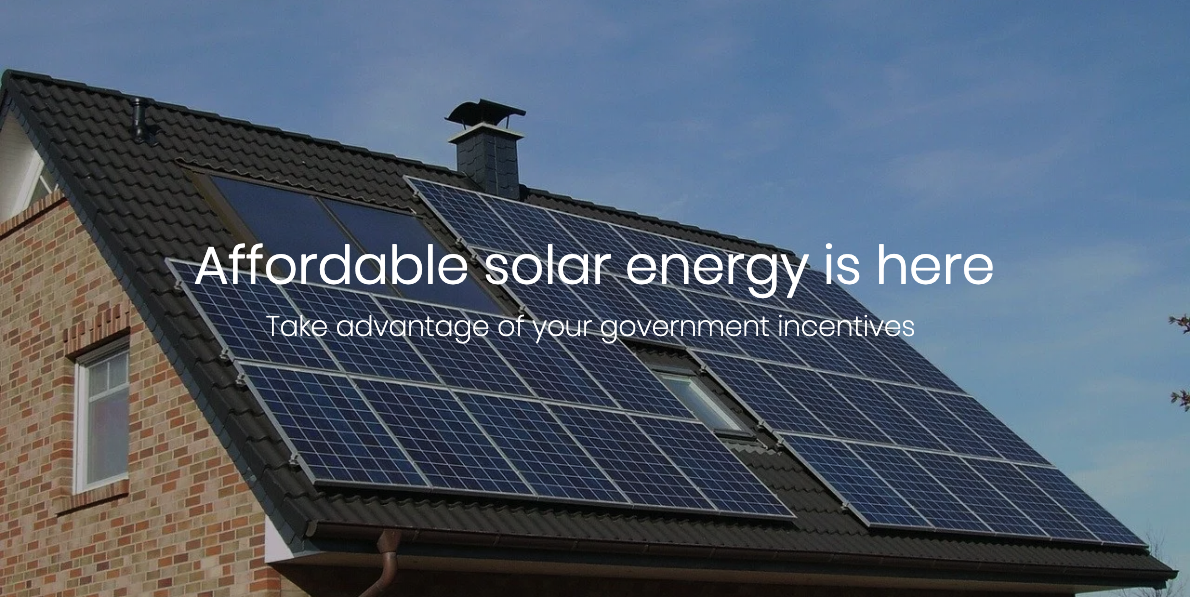
The solar Investment Tax Credit (ITC) is one of the most important federal policy mechanisms to support the growth of solar energy in the United States.
~ Solar Energy Industries Association (SEIA) ~
The Solar Investment Tax Credit (ITC)
Recognizing the need to incentivize the transition to cleaner, renewable energy sources, the Energy Policy Act of 2005(EPAct) contained government solar incentives, including a 30% investment tax credit (ITC), which meant any business or residential homeowner could deduct 30% of the cost of a solar system installed from their federal income taxes—a dollar-for-dollar reduction in the income taxes a person or company would otherwise have to pay to the federal government.
When it was first passed, the solar ITC in EPAct could only be claimed in 2006 and 2007. But then the Tax Relief and Health Care Act of 2006 extended the solar ITC for an additional year to include 2008. After that, the Emergency Economic Stabilization Act of 2008 saw an eight-year extension of the commercial and residential solar ITC all the way through 2016. Finally, in 2015 Congress passed yet another multi-year extension of the 30% ITC to remain available through 2019. If construction or installation of a solar system started in 2019, it’s time to claim the full 30% ITC for that project.
Moving forward from here, the ITC begins to phase out in steps. As of 2020, the solar ITC is 26%. It will drop again to 22% in 2023, which is the last year residential homeowners can take advantage of the solar ITC. All projects hoping to take advantage of the solar ITC must be completed by 2024 to be eligible.
SEIA explains how the ITC works when solar is included in newly constructed homes: “If a homeowner buys a newly built home with solar and owns the system outright, the homeowner is eligible for the ITC the year that they move into the house. If the homeowner leases the solar system or purchases electricity from the system through a power purchase agreement (PPA), then the ITC is claimed by the company that leases the system or offers the PPA.”
If you’re interested in learning more about the solar ITC, check out the US Department of Energy’s online document: Homeowner’s Guide to the Federal Tax Credit for Solar Photovoltaics.
The Impact of Government Solar Incentives
It’s hard to overstate the positive impact government solar incentives such as the solar ITC have had on the industry. Since EPAct was passed in 2005, the solar energy industry has grown by 10,0000% (according to SEIA). The solar industry in the US employs 242,000 people. And while not all of that growth can be directly attributed to just the solar ITC, it has clearly had a major role in reaching that level of growth, which has averaged more than 50% yearly growth over the past decade. This growth in the solar energy industry has added many jobs to the economy and helps keep up momentum in the transition to cleaner renewable energy.
But it’s not just tax credits from the federal government that have helped grow the solar energy industry. Other government solar incentives include state rebates and tax credits, feed-in tariffs (FiTs), net metering schemes, and solar renewable energy credits or SRECs (the “c” can also stand for “certificates”). As you might expect, these other kinds of government solar incentives vary widely from state to state. While it may be true that the federal solar ITC is finally going to phase out, Massachusetts is so focused on renewable energy right now that it’s hard to imagine any of its programs (see below) going away any time soon—but you never know for sure.
Claim Your Government Solar Incentives Now!
You might think with all the government solar incentives, the rapid growth of the solar industry, and the 70% reduction in the cost of solar systems over the past decade that the US must be getting a lot of its electricity from renewable solar systems, but you’d be wrong. In spite of all these great numbers, solar energy still only accounts for 2.5% of US electricity generation. But it’s still rapid progress considering that back in 2010 solar provided only 0.1% of US electricity!
So the question you have to ask yourself is this: Are you going to act before it’s too late? You can get a 26% solar investment tax credit applied to your 2020 federal taxes if you get your system started this year. And you can also enjoy other incentives in Massachusetts, including the following:
- Residential Renewable Energy Income Tax Credit: A straight-forward 15% state income tax credit up to $1,000.
- Solar Massachusetts Renewable Target (SMART) Program: Although geared mostly towards larger solar projects, even small home solar installations can participate in this program in which the state pays Eversource, National Grid, and Until customers a fixed rate per kilowatt hour (kWh) of solar energy produced for 10-years for big savings.
- Massachusetts Net Metering: Eversource, National Grid, and Until customers with solar systems can use net metering to transfer excess energy to their electric company for credit.
- Sales Tax Exemption: You will not pay sales tax on any of the equipment you purchase for a home solar energy system.
- Property Tax Exemption: Having a home solar system enhances the value of your house, which means more money paid in property taxes, right? Wrong! At least for a while. The value added by your home solar system is exempt from property taxes for 20 years!
- Mass Solar Loan: A low-interest, fixed-rate loan to help you finance your home solar system.
With government solar incentives like these, there’s never been a better time than right now to get started on your home solar energy project. And NEEECO is ready to help! We’ll help you identify which of the incentives above you might be eligible for as we explore the type of system right for your home. You can purchase your system from us to own it outright, or you can lease your system from us with as little as $0 money down and locked-in cheap electricity rates, or we can help you finance it. Whatever choice is best for you, you’ll be on your way to big savings on your electric bill and playing your part in the national transition to cleaner renewable energy.
Call (781) 514-5882 or contact us to get started with a no-cost Mass Save® home energy assessment.
